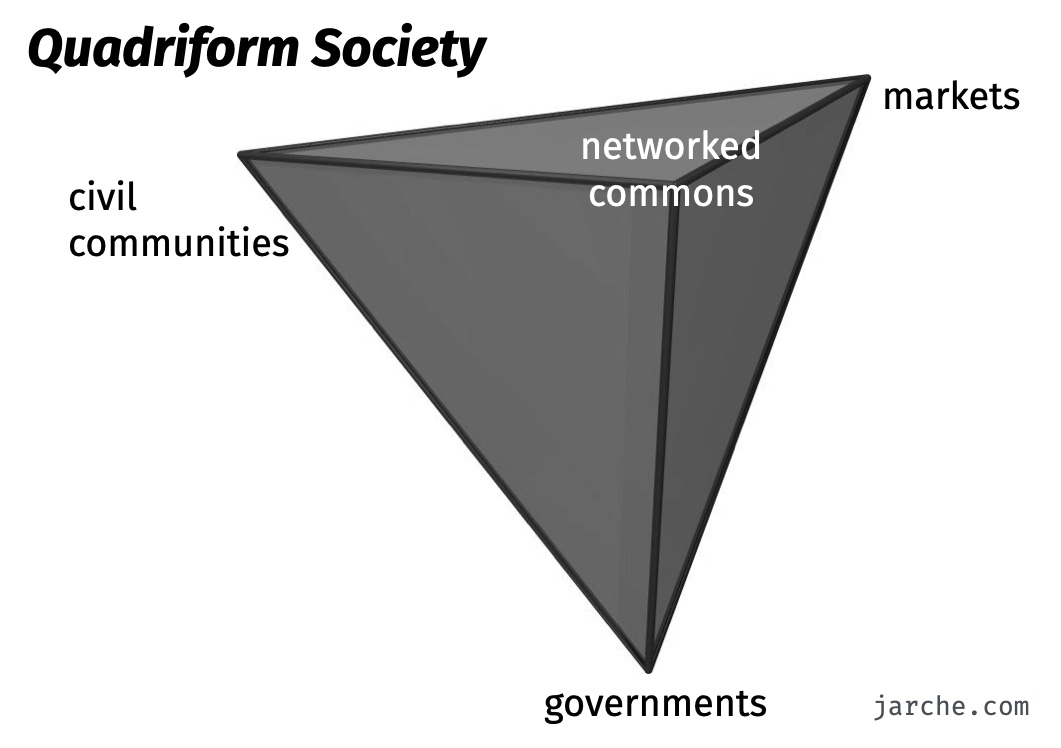a global human sensemaking platform
Author: Harold Jarche
Go to Source
The thinking that got us into this mess will not get us out of it. If we are to create a new economic order it has to move beyond civil society, governments, and markets. A quid pro quo between private firms and public authorities will only reinforce the status quo.
“A new economic order requires an explicit quid pro quo between private firms and public authorities. To prosper, firms need a reliable and skilled workforce, good infrastructure, an ecosystem of suppliers and collaborators, easy access to technology, and a sound regime of contracts and property rights. Most of these are provided through public and collective action, which is the government’s side of the bargain.
Governments, in turn, need firms to internalize the various externalities their labor, investment, and innovation decisions produce for their communities and societies. And firms must live up to their side of the bargain – not as a matter of corporate social responsibility, but as part of an explicit regulatory and governance framework.” —Project Syndicate 2020-06-11
 A quadriform society includes the networked commons in a four-way sharing of power and influence. We have seen this already with the global response to the pandemic that mobilizes local communities and connects global research, often in contradiction to national governments. Networks share knowledge faster than markets or institution and can do so on a global scale.
A quadriform society includes the networked commons in a four-way sharing of power and influence. We have seen this already with the global response to the pandemic that mobilizes local communities and connects global research, often in contradiction to national governments. Networks share knowledge faster than markets or institution and can do so on a global scale.
“First, individuals are empowered to become co-creators, co-producers, and co-distributors of information for the benefit of their communities … Second, the accessibility of these knowledge products enables innovation. The release of patents under an open license means that inventors and manufacturers can build needed solutions without the worry of a lawsuit. Open-source projects lower barriers to access, and allow people to use these tools to help themselves or those around them—for example, 3D printer owners can now print medically-approved masks to combat shortages.
The pandemic response has shown the benefits of a commons-based model of knowledge production and sharing.” —Wired 2020-05-27
Whether we work in civil society, government, or the market, the way ahead is clear — use the network form to make sense locally so that it can be shared faster on a global scale. Leadership in all aspects of society is making our networks more resilient, smarter, and able to make better decisions. Networked learning is the only way we will be able to deal with this pandemic, which is far from over, as well as future pandemics. Networked learning — beyond institutions and markets — is the human sensemaking platform we need to deal with the even greater complex challenge of climate change.

